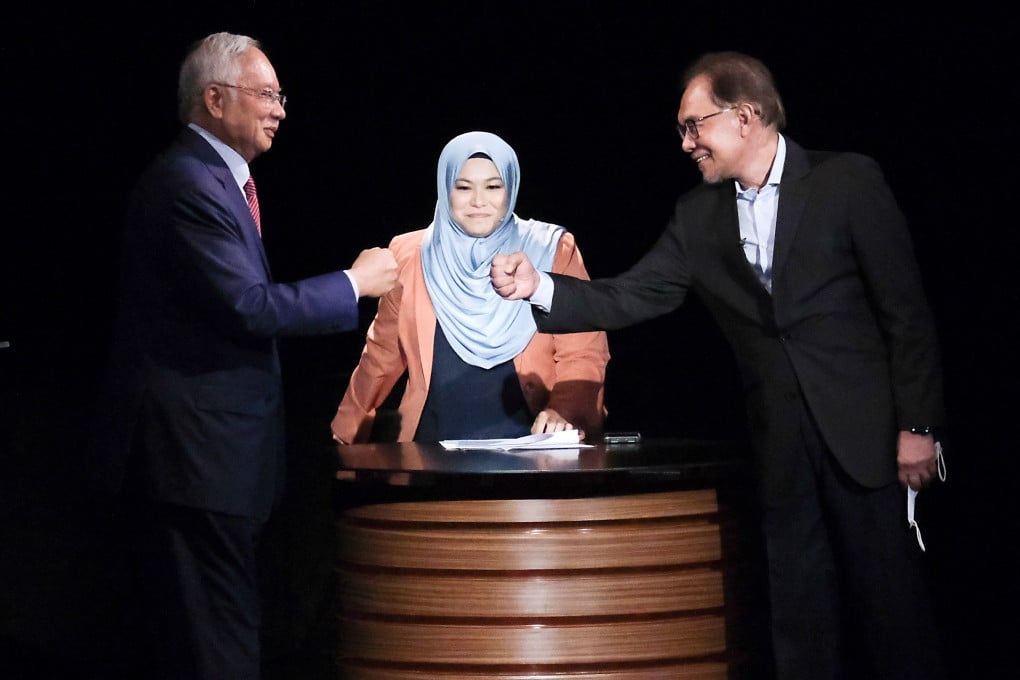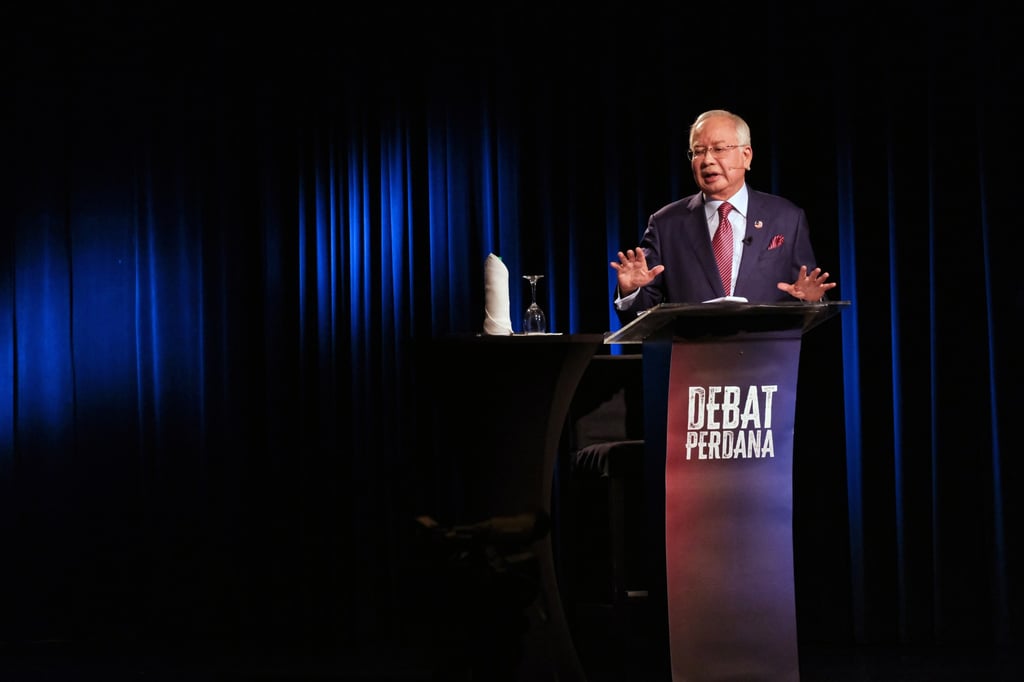‘Cakes and cash’ feature in rare Malaysia TV debate between 1MDB-tainted ex-PM Najib and opposition leader Anwar
- Najib Razak, PM from 2009-2018, is on bail appealing the 12-year prison sentence handed down in 2020 for his role in the investment fund scandal
- He has avoided many debates but this time took part in a 90-minute stand-off with seasoned orator Anwar Ibrahim, with many saying there was no clear winner

Badminton-crazy Malaysia would have normally been riveted to a live broadcast of a Thomas Cup fixture against long-time rivals India.
But as the men’s team battled, and was eventually defeated, on Thursday night, the country’s attention was elsewhere, with social media buzzing over the highly anticipated and much-watched US-style ‘grand debate’ between scandal-haunted ex-prime minister Najib Razak and opposition leader Anwar Ibrahim.
Observers dubbed the televised war of words to be one of the most high-profile public appearances for Najib since his stunning defeat in 2018’s election, which was followed by his 2020 conviction in the first of several cases linking him to the multibillion dollar 1MDB investment fund corruption scandal.
He received a 12-year jail sentence but is currently on bail pending an appeal to the country’s highest court.

Some analysts and social media commentators wondered just what was achieved in Thursday’s high-profile 90-minute spectacle, with most local media offering live updates on the event as if it were an election debate.